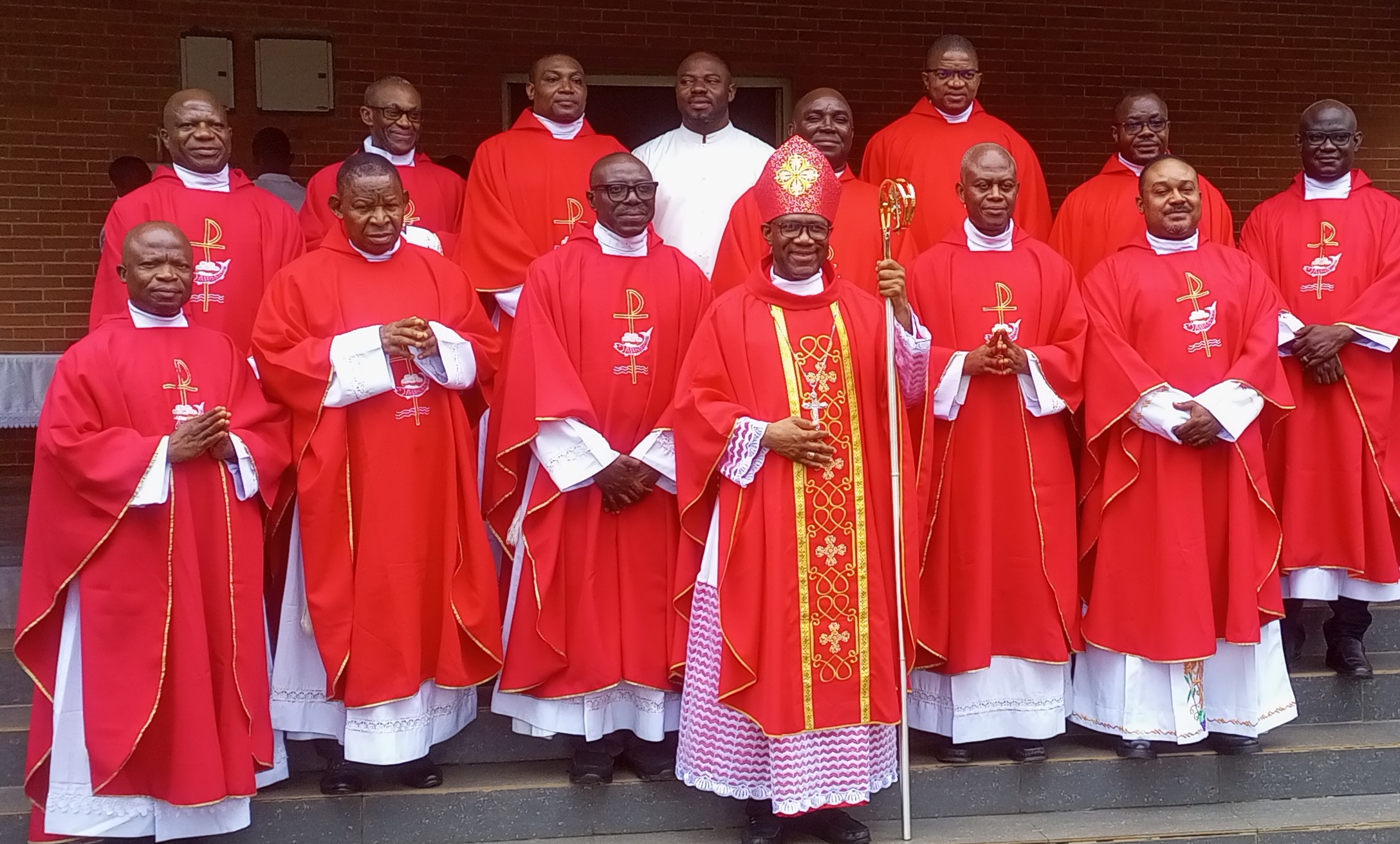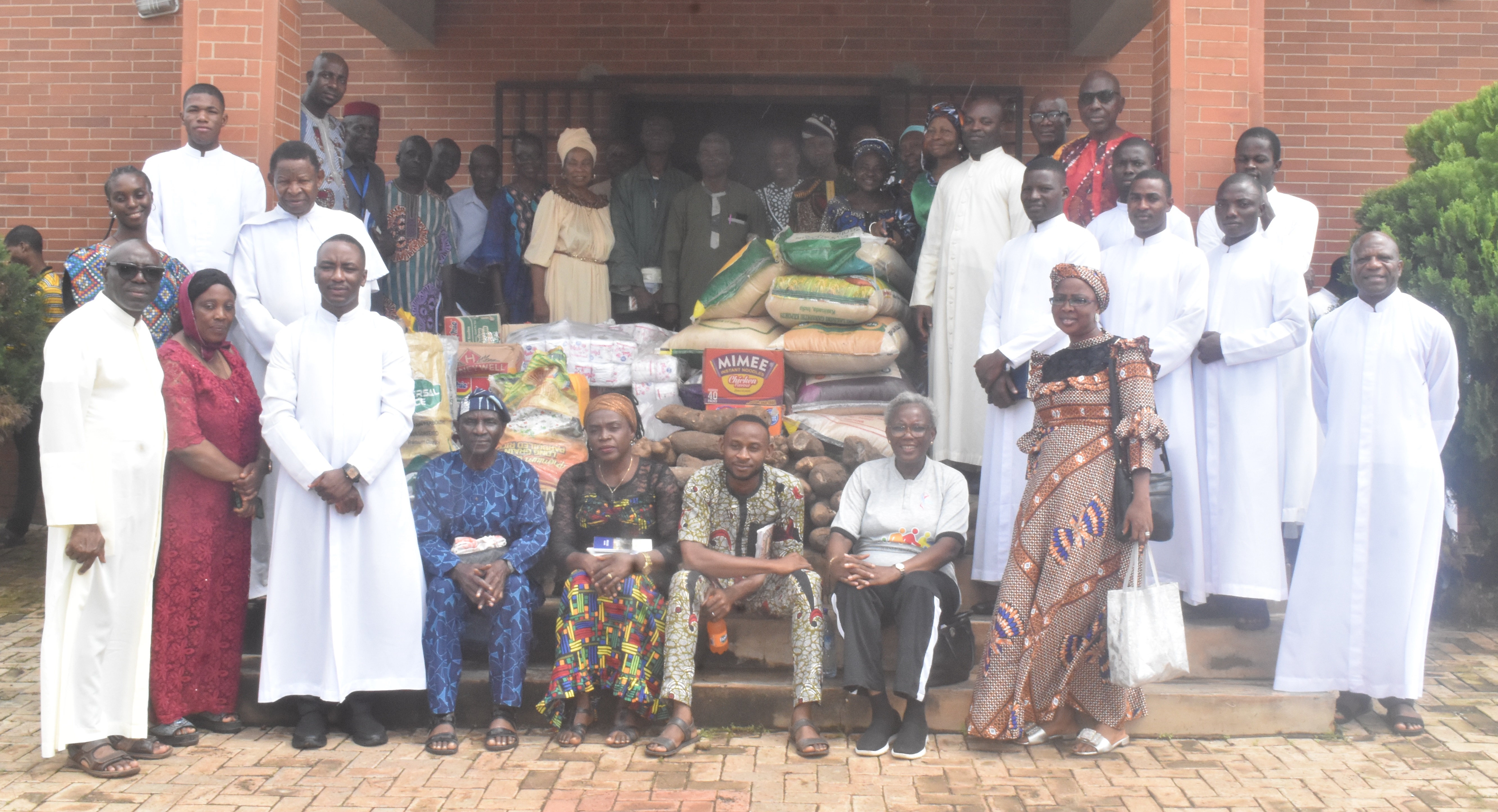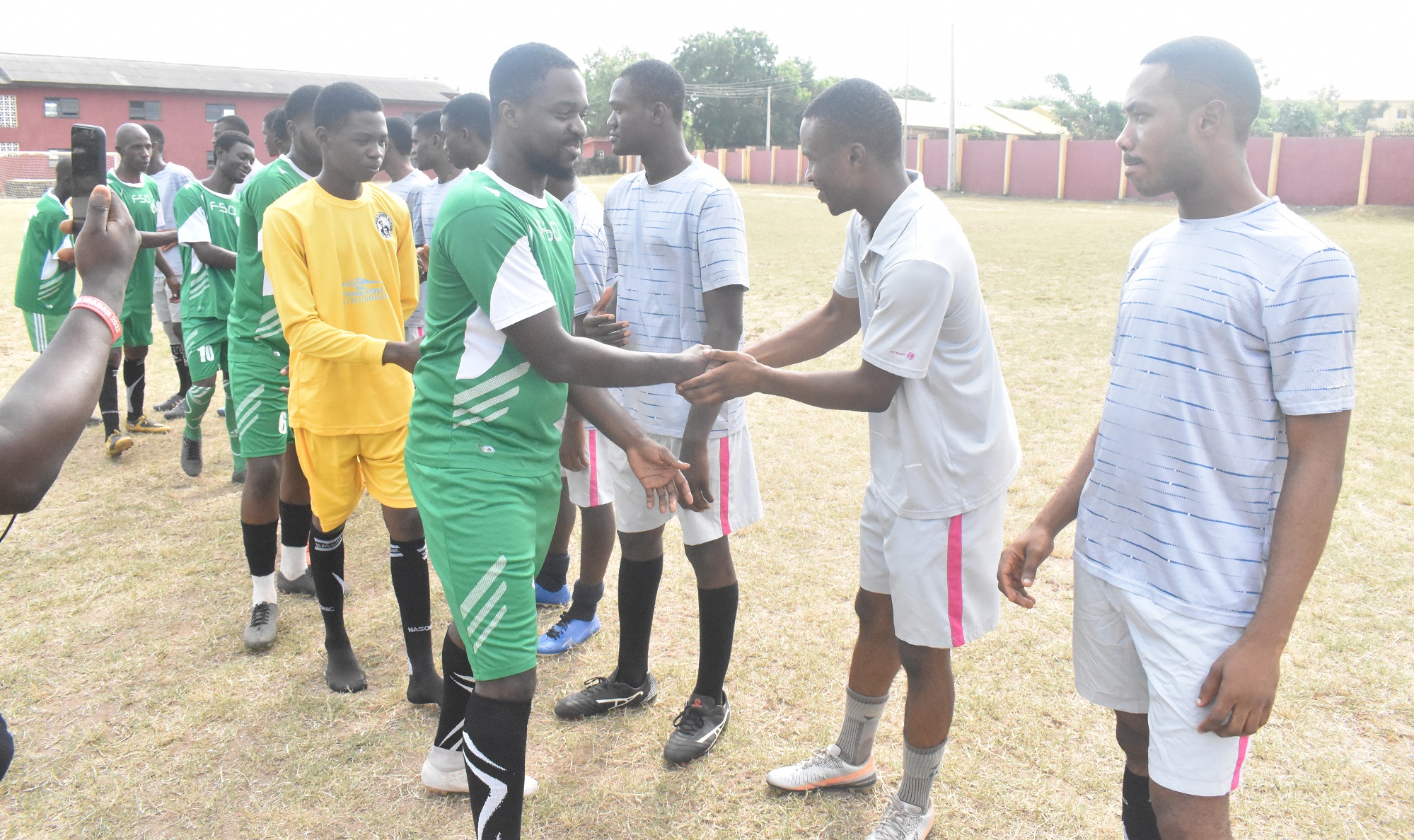Formation Programmes
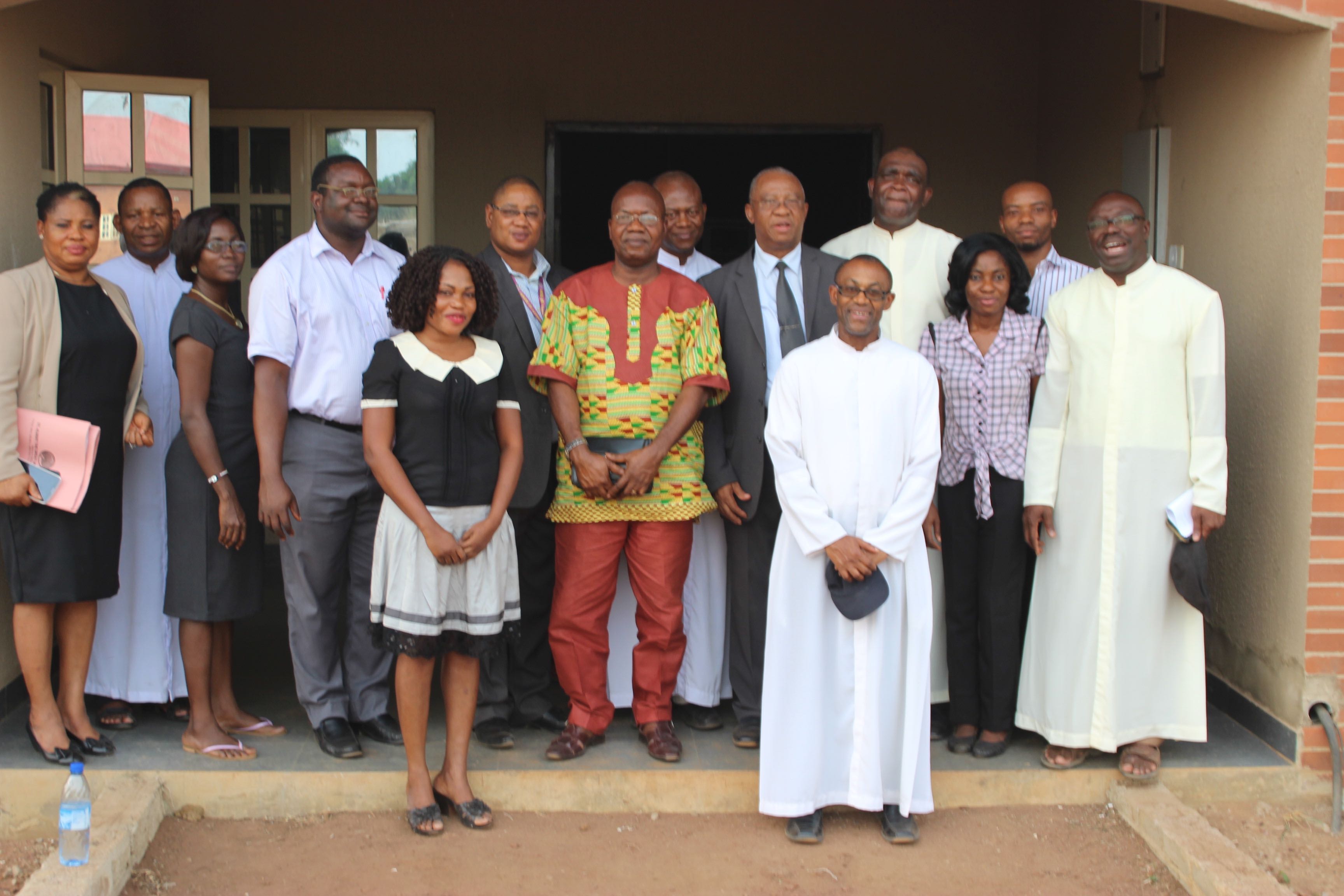
Intellectual Formation
The academic component of the formation programme is designed to be in two phases: The Philosophicum which will run for the first 4 academic years; and the Theologicum, which will run for the second four years, with the Pastoral Year constituting the first of the second four years. The course content of the philosophicum that we have at St. Albert the Great Seminary is broad-based, boasting of a selection of humanistic, natural and social sciences as well as linguistic disciplines. To facilitate this, the Seminary applied for an affiliation to the University of Benin, Benin City. The senate of the University approved this application on September 23, 2015. With this, this phase of study will culminate in the award of a Bachelor of Arts Degree in Philosophy by the University. This programme is bifunctional. It takes cognisance of the needs of priestly formation while at the same time provides for the requirements for the award of a Bachelor’s Degree in Philosophy. In drawing up this programme, efforts were made to make it relevant to the needs of our time and context. To this end, courses like History and Culture of Nigerian Peoples, History of West African Peoples and Nations, Philosophy of Values, among others, were delineated and incorporated. Plans have also been made for the comprehensive training of our seminarians in the various aspects of Information and Communications Technology to keep them abreast of modern means of acquiring and disseminating information.
The Library
The place of a good library in modern educational pursuit cannot be over emphasized. In view of this, the young Seminary has a standard structure that is equipped with state of the art shelves, reading tables and seats for use as a library. Since sourcing physical text is a long term project in our clime, we have devoted considerable amount of effort to developing the E-component of the library. To this end, we have acquired a central server to network a minimum of 20 computer terminals within the library to provide inter/intranet services within the library complex. To make this functional, a power inverter has been installed to ensure regular power supply to the network. Besides this, efforts are on to provide an equipped computer centre within the lecture area. The location is already chosen and wired for internet and intranet access and currently awaiting furnishing and installation of computer units.
The goal is to have an integrated system that would provide access to online materials when needed, granting access to the stock of digital texts that we are building and access to other E-libraries to which we have subscribed.
Lecture Schedule
Lectures run from 8.30am till 12.45pm Mondays to Saturdays with the exception of Wednesday which are lecture-free days. Each lecture lasts 50 minutes. Tutorials, group work and seminar presentations are scheduled for the afternoon hours between 3.00 and 4.30pm. Seminarians are encouraged to take maximum advantage of times allotted for lectures and to apply themselves diligently in writing their assignments and fulfilling all the obligations deriving from the various courses they are taught. The teaching method adopted is explorative and didactic, creating incentive for further research by students, while all the time being sufficiently systematic and comprehensive. Examinations, written or oral, are conducted at the end of each semester.
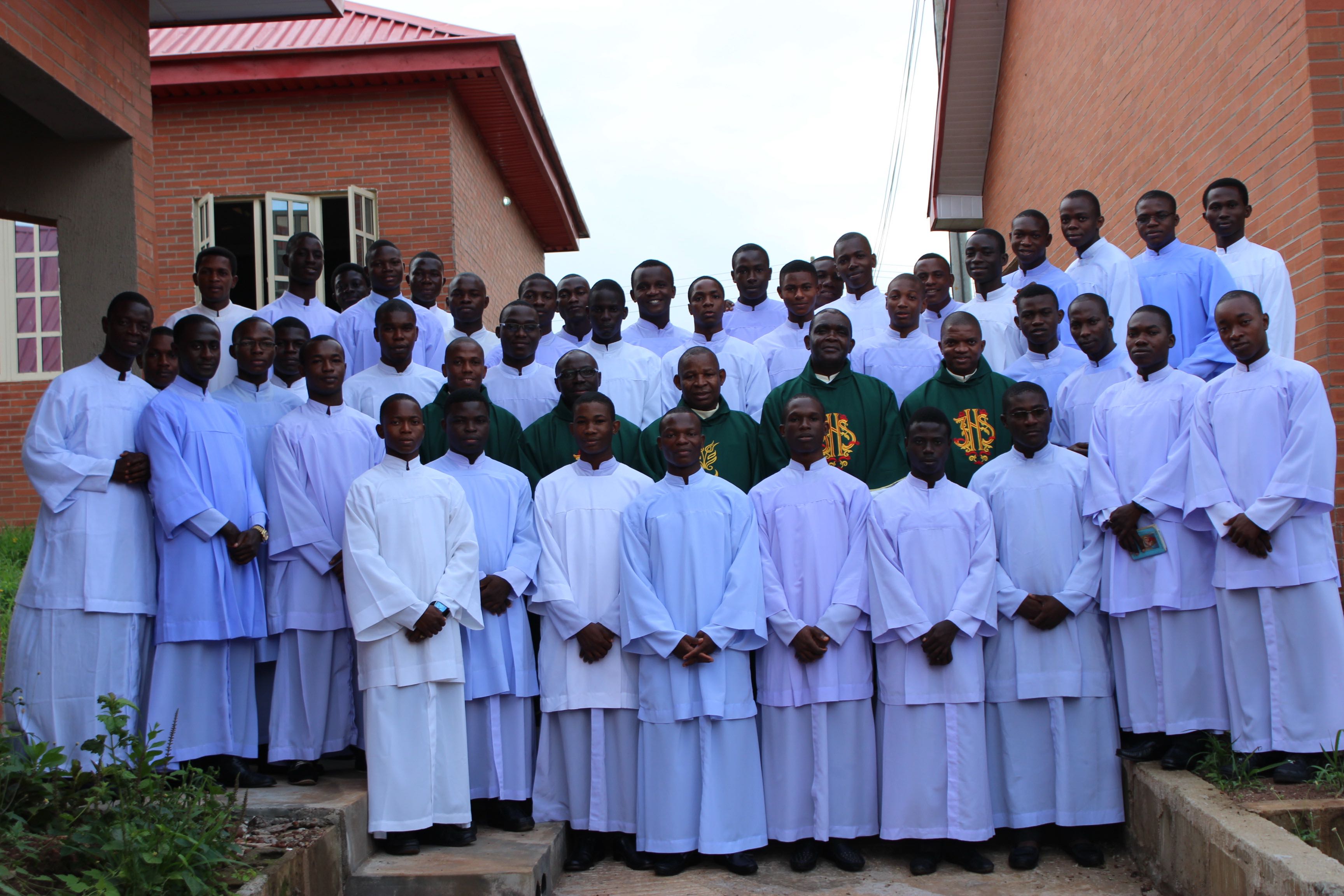
Human Formation
< strong>St. Albert the Great Seminary has chosen to focus attention on forming good and committed Cath olic priests who will face their tasks as ministers of the Word and Sacraments with utmost diligence. We hope to achieve this by insisting on thorough and profound instruction in the classical disciplines as well as the traditions of the Church. This will go hand-in-hand with an exploration of our cultural roots to enable candidates imbibe the positive values of our cultural heritage that find an easy consonance with those of our faith tradition. Areas of focus include developing a strong community spirit that takes the appreciation of the value of the human person as the template for social interaction; seeking to instil a deep sense of respect for persons, whether older or younger; insisting on and encouraging the development of an acute sense of responsibility for one’s own self, one’s actions and towards one’s obligations; as well as seeking to encourage the development of a deep sense of faithfulness to one’s commitments.
Seminary Segmentation into Units
Each hostel is grouped as a community under the headship of a member of the Formation Team that is resident within that hostel. The residents have a common recreation room and an oratory within the hostel structure. To help foster both social and spiritual communion, the programme provides for House Masses on Wednesdays and Compline most evenings. The current population of these communities are 20 and 21. It is hoped that even when the seminary is fully on stream, the maximum number of each community will average about 30. From within these communities, close interpersonal interaction is engendered, and growth in the required values is closely fostered and observed.
Furthermore, the virtue of seeking elegance in simplicity in one’s tastes and comportment is highly emphasized. This goes hand in hand with the encouragement and fostering of an acute sense of personal and environmental hygiene that finds expression in the dictum: ‘cleanliness is next to Godliness.’ In this way, we hope to nurture in our future priests, the aesthetic values of cleanliness and orderliness that allow for the emergence of the natural goodness and beauty that are imbedded in every aspect of creation.

Spiritual Formation
The programme of spiritual activities at St. Albert the Great follows the template of the general programme in the existing seminaries. It however seeks to pay attention to the individual person living within a community by creating room for regular small community based spiritual exercises. These include regular House Masses and compline within the house setting as well as regular access to spiritual directors who live close to them in their hostel areas. Other activities aimed at providing for the healthy and sustainable spiritual development of our seminarians include, daily meditation and Eucharistic adoration before community Mass, the praying of the various hours, monthly recollection, penitential service, spiritual conferences, and regular private consultation of the spiritual directors among others.
With these, and encouragement to private devotional practices, we hope to develop a spirituality that is at once transformative and personalised, yet firmly rooted in the traditions of the Church and directed at a complete submission to the will of God through the maternal care of our mother, Mary.
In all, the role of the Spiritual Directors is pivotal. They plan and supervise the programme in spiritual formation with the collaboration of the Formation Team. They are the Ordinary Confessors and oblige the seminarians’ requests for confessions at various times and at scheduled penitential services. Above all, they accompany the seminarians daily on their journey of formation by being available to them for consultation and direction upon request and at scheduled intervals.

Pastoral and Missionary Formation
The Church exists to evangelize. Imparting a pastoral/missionary spirit and outlook is therefore a critical element in the formation of future priests. To this end, the entire formation programme, including the academic segment, is rich in elements that would satisfy the need for our seminarians to imbibe, from the beginning, the desirable orientation towards the pastoral ministry. The location of our seminary offers some challenges, and at the same time, certain special opportunities to develop good pastoral and missionary consciousness.
For a proper coordination of such, a member of the Formation Team has been designated to direct and co-ordinate the various activities that are related to the pastoral formation of seminarians. Among such activities include regular Sunday Masses for our host community; visitation to homes in the surrounding villages; preparation of children for the reception of the Sacraments of Initiation; working with adults who would wish to return to the sacraments; and visitation to neighbouring primary schools to give talks on designated days. In fact, our seminarians are already visiting homes in the neighbouring communities in pairs, and we hold a joint Christ the King celebration with the host community.

